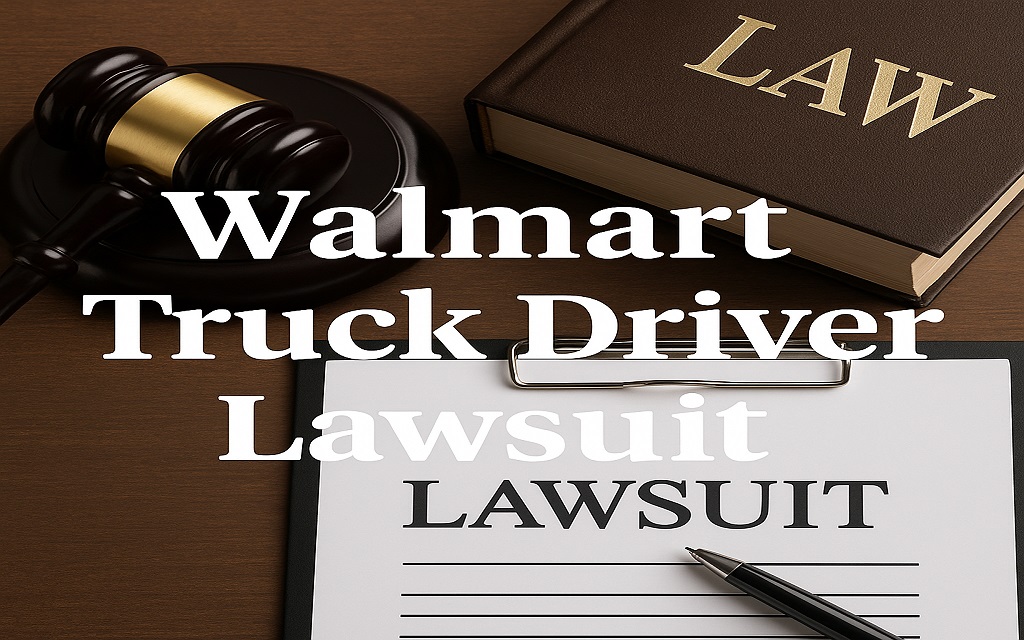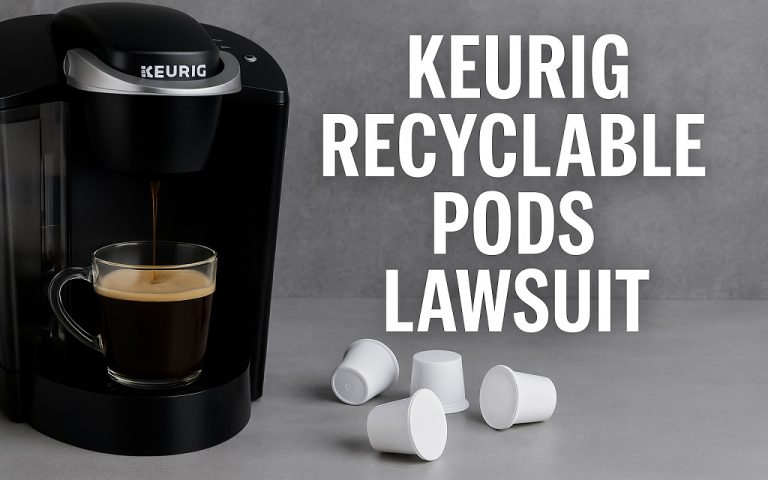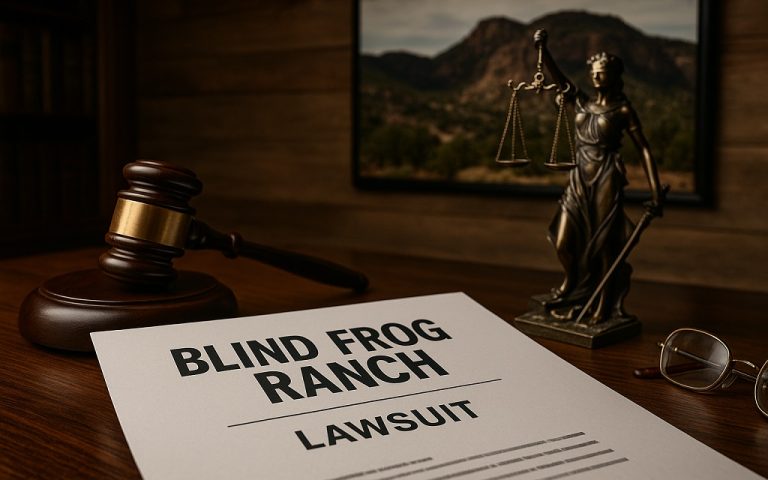You should understand why the Walmart truck driver lawsuit matters. A jury awarded $35 million to a driver who lost his job after filing a valid injury claim. Walmart not only fired him but also shared false statements that hurt his reputation. You will see how this case highlights essential details about corporate culpability and employee rights. Understanding your rights is crucial before you are subjected to reprisals or defamation.
What Triggered the Lawsuit Against Walmart?
You should know the case began when a Walmart truck driver filed a valid injury claim. It is essential to note that the driver suffered harm while performing his duties. Walmart responded by firing him. The company also shared statements that damaged his reputation.
You should consider the jury’s final decision. The court ruled that Walmart had wrongfully terminated the driver. The verdict included a $35 million award for defamation and retaliation.
What Was the Walmart Truck Driver Lawsuit About?
The case focuses on a Walmart truck driver who was injured on the job and filed a workers’ compensation claim. According to the lawsuit, the driver was subjected to an internal examination and ultimately dismissed rather than given help from the employer. Even more concerning, Walmart allegedly defamed the driver by suggesting misconduct or fraud related to the compensation claim.
A jury eventually found that Walmart had made defamatory remarks that harmed the driver’s reputation in the workplace in addition to firing him unfairly. The verdict awarded $35 million in compensatory and punitive damages.
How Can You Identify Wrongful Termination?
If your employer fires you for violating employment laws, you may be subject to wrongful termination. It is essential to know that the following actions protect you:
- Filing a valid injury or workers’ comp claim
- Reporting workplace safety issues
- Refusing to violate laws or ethics
If your firing is related to one of these protected activities, you should see a lawyer.
Why Is Defamation Important in Employment Cases?
The idea of slander in the workplace must be understood. If your employer publishes false information about your behaviour, you might become a victim. You should consider the legal definition:
- False claims shared within the organization
- Harmful statements are passed to potential employers
- Accusations of fraud or deception
In this case, Walmart shared inaccurate information that harmed the driver’s reputation. You should be aware that this type of defamation can result in serious legal consequences.
Are You Protected After Filing a Workers’ Comp Claim?
You should understand your legal rights after a workplace injury. Workers’ compensation laws prevent retaliation. If your employer punishes you for reporting an injury, you may take legal action.
According to OSHA data, nearly 50% of injured workers report fear of retaliation. You should document every conversation and store medical records safely.
Use case example: A warehouse worker in Indiana won a $1.2 million lawsuit after being fired for a compensation claim. You should draw parallels to strengthen your case.
Retaliation and Workers’ Compensation
Laws regarding workers’ compensation are in place to protect workers who are injured on the job. Filing a claim should never result in retaliation. However, when businesses view injury claims as a threat to productivity or a hindrance to cost reductions, this example highlights the vulnerability of employees.
Some protection is provided by state and federal legislation (such as the Americans with Disabilities Act and OSHA standards), but its enforcement frequently necessitates legal action.
Actionable Tip: If you believe you were retaliated against after filing a claim, consult a labor attorney and document all related communication.
How Does Corporate Liability Apply to This Case?
You should view this case as a warning for employers. Walmart, a multinational corporation, faced penalties not only for firing the driver but also for causing reputational damage.
Corporate liability arises when a company fails to respect its employees’ rights and responsibilities. The legal system held Walmart accountable for violating employment law.
You should remember that large companies have a legal duty to:
- Handle claims fairly
- Avoid retaliation
- Protect employee dignity
What Are the Wider Implications for Workers?
You should pay attention to the legal precedent. The $35 million jury award demonstrates that courts now take wrongful termination and defamation seriously. The $35 million verdict sets a strong precedent, particularly for:
- Trucking and logistics companies
- Workers in high-risk environments
- HR departments are developing termination policies
More truckers and warehouse workers may come forward. A recent labor report shows a 22% rise in workplace retaliation claims in 2024.
It is essential to consider how this impacts HR policies. Companies may now update their termination guidelines. Legal departments must review their approach to handling compensation claims.
What Truck Drivers and Workers Should Know
- Know Your Rights: You cannot be legally fired for filing a workers’ compensation claim.
- Document Everything: Keep copies of all medical documents, incident reports, and HR conversations.
- Consult a Lawyer: Early legal consultation increases the chances of a favorable outcome.
- Stay Informed: Laws vary by state. Understand your local protections.
What Should You Do If You Face Retaliation?
You should take the following steps:
- Contact a labor attorney immediately
- Collect emails, memos, and conversations
- Request your employment records
- Stay calm and follow documented procedures
You must act quickly. Courts value complete and dated evidence.
Example: A truck driver in Texas filed a successful claim after saving emails that showed threats from supervisors.
How Did Walmart Respond to the Lawsuit?
Walmart denied all accusations. The company announced it might appeal the decision. It is worth noting that public support shifted in favor of the driver.
Unions and labor groups released statements condemning corporate retaliation. Social media also amplified support. Legal experts said the case may serve as a precedent for future employment claims.
Quote: “This isn’t just one truck driver. It’s every worker told to stay silent.” — National Labor Rights Council.
What Are the Legal Rights of Truck Drivers?
You should learn what protections apply to you:
- Right to file injury claims without retaliation
- Right to legal action if defamed or fired unfairly
- Right to privacy and accurate employer records
State laws may differ. You must verify your specific protections with a local attorney.
What Can You Learn From This Case?
You should see the Walmart lawsuit as a signal. Corporations must follow legal processes. Employees now have a stronger chance to fight back.
It is essential to stay informed. You should take action when your rights are ignored. The law is clear. Workers deserve safety, respect, and fair treatment.
Conclusion
You should treat the Walmart truck driver lawsuit as a turning point. Courts now recognize retaliation and defamation as serious violations. You must know your rights before problems begin. If your employer acts unfairly, you can take legal steps. It is essential to act promptly, stay informed, and safeguard your future.
Must Read: Ashcroft Capital Lawsuit: What Investors Need to Know
FAQs
What was the case’s award?
You should know the jury awarded $35 million.
Why did Walmart lose?
It is essential to note that the court found the company had unfairly fired and defamed the driver.
Can someone appeal the verdict?
Yes. Walmart may seek to overturn the ruling.
Can other workers sue too?
You may file a lawsuit if you face similar circumstances.
What laws protect injured employees?
You should refer to workers’ comp laws, OSHA, and ADA statutes.
Disclaimer: This article provides a general overview of the Walmart Truck Driver Lawsuit based on publicly available information and is intends for informational purposes only. It is not legal advice..
Musarat Bano is a content writer for JudicialOcean.com who covers lawsuits, legal news, and general legal topics. Her work focuses on research-based, informational content developed from publicly available sources and is intended to support public awareness. She does not provide legal advice or professional legal services.




